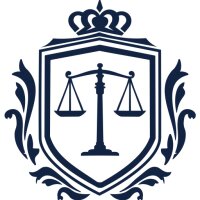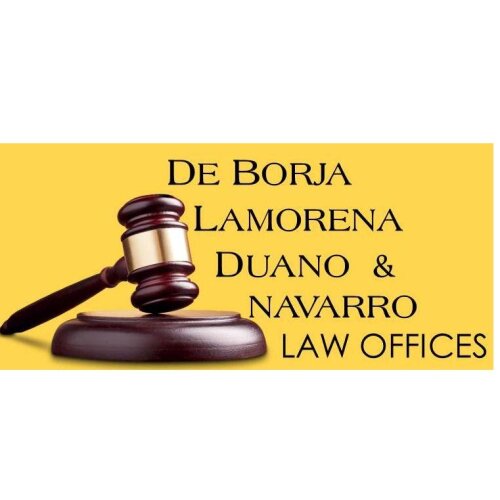Best Sanctions & Export Controls Lawyers in Manila
Share your needs with us, get contacted by law firms.
Free. Takes 2 min.
List of the best lawyers in Manila, Philippines
About Sanctions & Export Controls Law in Manila, Philippines
Sanctions and export controls are legal mechanisms that regulate the movement of goods, services, and technologies across national borders. In Manila, Philippines, these laws are designed to comply with local priorities, international obligations, and global security concerns. They ensure that strategic or sensitive products, such as advanced technologies, weapons, and dual-use goods, do not fall into the hands of adversaries or are used in violation of international agreements. Sanctions may also target specific countries, companies, or individuals, restricting trade or financial transactions to support foreign policy objectives or comply with international directives from bodies like the United Nations.
Why You May Need a Lawyer
Navigating the complex landscape of sanctions and export controls in Manila can be challenging for businesses, organizations, and even individuals. Here are some common situations where seeking legal assistance is important:
- Ensuring compliance with local and international export control laws and trade sanctions
- Applying for appropriate government permits or licenses for exporting controlled items
- Understanding the implications of trading or dealing with countries, entities, or individuals under sanctions
- Responding to investigations or enforcement actions from regulatory authorities
- Reviewing contracts and supply chain issues to avoid inadvertent breaches
- Advising on internal compliance programs and risk assessments
- Defending against penalties, fines, or criminal proceedings related to violations
- Guiding mergers, acquisitions, or investments that may involve restricted goods or parties
Consulting a lawyer ensures you receive accurate, up-to-date advice tailored to your situation, helping to avoid significant legal and financial exposure.
Local Laws Overview
The Philippines has implemented a range of laws and regulations related to sanctions and export controls, particularly in response to international agreements and national security priorities. Some key aspects include:
- Strategic Trade Management Act (STMA) of 2015 (Republic Act No 10697) - Establishes controls on the export, import, transit, transshipment, reexport and brokering of strategic and dual-use goods, software, and technology. It mandates registration and licensing of affected parties.
- Philippine Export Control List - Details which items and technologies are subject to export controls, including those with military, intelligence, or dual-use applications.
- Anti-Terrorism Act of 2020 (Republic Act No 11479) - Includes provisions affecting transactions with entities or individuals linked to terrorism, including asset freezes and restrictions.
- Banking and Financial Regulations - Require screening of payments and clients against local and international sanctions lists, overseen by the Anti-Money Laundering Council (AMLC).
- Customs Modernization and Tariff Act (CMTA) - Gives customs the authority to enforce export-related restrictions and verify clearance documentation.
- International Commitments - The Philippines implements United Nations Security Council sanctions and complies with relevant international treaties and obligations.
Failing to comply with these regulations may result in administrative penalties, fines, criminal charges, or restrictions on business operations.
Frequently Asked Questions
What are controlled or strategic goods under Philippine law?
Controlled or strategic goods include items, software, and technology with military, intelligence, or dual-use purposes. These are listed in the Philippine Export Control List maintained by relevant agencies.
Who regulates export controls in the Philippines?
The main regulator is the Strategic Trade Management Office (STMO) under the Department of Trade and Industry, with support from customs, AMLC, and other government bodies.
Are there penalties for violating sanctions or export controls?
Yes. Violations may result in administrative fines, criminal prosecution, imprisonment, and revocation of business permits or licenses.
Do I need a license to export controlled goods?
Yes. You must register with the STMO and apply for specific licenses before exporting any controlled or dual-use goods, software, or technology.
Can individuals be sanctioned, or is it only businesses?
Both individuals and businesses can be subject to sanctions, especially if they engage in prohibited transactions or support sanctioned entities.
How do I know if I am doing business with a sanctioned party?
You must conduct due diligence by checking local and international sanctions lists. The AMLC and STMO provide guidance on screening procedures.
Are there exemptions to export control laws?
Some exemptions may apply for humanitarian goods, certain research activities, or specific circumstances. However, these require prior government approval.
How do international sanctions apply in the Philippines?
Philippine law incorporates United Nations Security Council sanctions and may recognize certain bilateral or regional sanctions subject to local regulation.
What should I do if I suspect a violation has occurred?
You should seek legal counsel immediately and consider self-reporting to the authorities to mitigate potential penalties.
Is legal advice necessary for every export transaction?
Not always, but it is strongly recommended when dealing with controlled goods, emerging technologies, new markets, or unfamiliar partners to ensure compliance.
Additional Resources
If you need further information or support, these government bodies and organizations are valuable resources related to sanctions and export controls in the Philippines:
- Department of Trade and Industry (DTI) - Strategic Trade Management Office (STMO)
- Philippine Customs Bureau (BOC)
- Anti-Money Laundering Council (AMLC)
- Department of Foreign Affairs (DFA)
- Philippine Exporters Confederation, Inc. (PHILEXPORT)
- Philippine International Trading Corporation (PITC)
- Philippine Economic Zone Authority (PEZA)
Each of these organizations can offer guidance, official rules, and procedural support for companies and individuals handling export controls and sanctions issues.
Next Steps
If you believe you require legal advice or assistance in sanctions and export controls in Manila, consider the following steps:
- Identify your specific concerns or business activities that may be subject to sanctions or export controls
- Gather relevant documents, contracts, or correspondence related to your case
- Consult with a licensed Philippine lawyer or a law firm specializing in trade, customs, or compliance matters
- Prepare a list of questions and issues for discussion during your legal consultation
- Follow your lawyer’s guidance on registration, licensing, compliance, or remediation as necessary
Seeking timely legal counsel can help you avoid costly mistakes, ensure business continuity, and protect yourself from potential legal consequences in the intricate field of sanctions and export controls.
Lawzana helps you find the best lawyers and law firms in Manila through a curated and pre-screened list of qualified legal professionals. Our platform offers rankings and detailed profiles of attorneys and law firms, allowing you to compare based on practice areas, including Sanctions & Export Controls, experience, and client feedback.
Each profile includes a description of the firm's areas of practice, client reviews, team members and partners, year of establishment, spoken languages, office locations, contact information, social media presence, and any published articles or resources. Most firms on our platform speak English and are experienced in both local and international legal matters.
Get a quote from top-rated law firms in Manila, Philippines — quickly, securely, and without unnecessary hassle.
Disclaimer:
The information provided on this page is for general informational purposes only and does not constitute legal advice. While we strive to ensure the accuracy and relevance of the content, legal information may change over time, and interpretations of the law can vary. You should always consult with a qualified legal professional for advice specific to your situation.
We disclaim all liability for actions taken or not taken based on the content of this page. If you believe any information is incorrect or outdated, please contact us, and we will review and update it where appropriate.

















